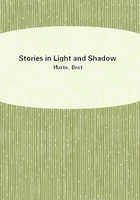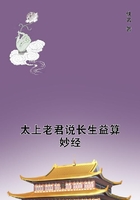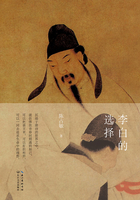Psychologically and in principle, the precept "Love your enemies" is not self-contradictory. It is merely the extreme limit of a kind of magnanimity with which, in the shape of pitying tolerance of our oppressors, we are fairly familiar. Yet if radically followed, it would involve such a breach with our instinctive springs of action as a whole, and with the present world's arrangements, that a critical point would practically be passed, and we should be born into another kingdom of being. Religious emotion makes us feel that other kingdom to be close at hand, within our reach.
The inhibition of instinctive repugnance is proved not only by the showing of love to enemies, but by the showing of it to any one who is personally loathsome. In the annals of saintliness we find a curious mixture of motives impelling in this direction.
Asceticism plays its part; and along with charity pure and simple, we find humility or the desire to disclaim distinction and to grovel on the common level before God. Certainly all three principles were at work when Francis of Assisi and Ignatius Loyola exchanged their garments with those of filthy beggars.
All three are at work when religious persons consecrate their lives to the care of leprosy or other peculiarly unpleasant diseases. The nursing of the sick is a function to which the religious seem strongly drawn, even apart from the fact that church traditions set that way. But in the annals of this sort of charity we find fantastic excesses of devotion recorded which are only explicable by the frenzy of self-immolation simultaneously aroused. Francis of Assisi kisses his lepers;
Margaret Mary Alacoque, Francis Xavier, St. John of God, and others are said to have cleansed the sores and ulcers of their patients with their respective tongues; and the lives of such saints as Elizabeth of Hungary and Madame de Chantal are full of a sort of reveling in hospital purulence, disagreeable to read of, and which makes us admire and shudder at the same time.
So much for the human love aroused by the faith-state. Let me next speak of the Equanimity, Resignation, Fortitude, and Patience which it brings.
"A paradise of inward tranquillity" seems to be faith's usual result; and it is easy, even without being religious one's self, to understand this. A moment back, in treating of the sense of God's presence, I spoke of the unaccountable feeling of safety which one may then have. And, indeed, how can it possibly fail to steady the nerves, to cool the fever, and appease the fret, if one be sensibly conscious that, no matter what one's difficulties for the moment may appear to be, one's life as a whole is in the keeping of a power whom one can absolutely trust? In deeply religious men the abandonment of self to this power is passionate. Whoever not only says, but FEELS, "God's will be done," is mailed against every weakness; and the whole historic array of martyrs, missionaries, and religious reformers is there to prove the tranquil-mindedness, under naturally agitating or distressing circumstances, which self-surrender brings.
The temper of the tranquil-mindedness differs, of course, according as the person is of a constitutionally sombre or of a constitutionally cheerful cast of mind. In the sombre it partakes more of resignation and submission; in the cheerful it is a joyous consent. As an example of the former temper, I quote part of a letter from Professor Lagneau, a venerated teacher of philosophy who lately died, a great invalid, at Paris:--
"My life, for the success of which you send good wishes, will be what it is able to be. I ask nothing from it, I expect nothing from it. For long years now I exist, think, and act, and am worth what I am worth, only through the despair which is my sole strength and my sole foundation. May it preserve for me, even in these last trials to which I am coming, the courage to do without the desire of deliverance. I ask nothing more from the Source whence all strength cometh, and if that is granted, your wishes will have been accomplished."[169]
[169] Bulletin de l'Union pour l'Action Morale, September, 1894.
There is something pathetic and fatalistic about this, but the power of such a tone as a protection against outward shocks is manifest. Pascal is another Frenchman of pessimistic natural temperament. He expresses still more amply the temper of self-surrendering submissiveness:--
"Deliver me, Lord," he writes in his prayers, "from the sadness at my proper suffering which self-love might give, but put into me a sadness like your own. Let my sufferings appease your choler. Make them an occasion for my conversion and salvation. I ask you neither for health nor for sickness, for life nor for death; but that you may dispose of my health and my sickness, my life and my death, for your glory, for my salvation, and for the use of the Church and of your saints, of whom I would by your grace be one. You alone know what is expedient for me; you are the sovereign master; do with me according to your will. Give to me, or take away from me, only conform my will to yours. I know but one thing, Lord, that it is good to follow you, and bad to offend you. Apart from that, I know not what is good or bad in anything. I know not which is most profitable to me, health or sickness, wealth or poverty, nor anything else in the world.
That discernment is beyond the power of men or angels, and is hidden among the secrets of your Providence, which I adore, but do not seek to fathom."[170]
[170] B. Pascal: Prieres pour les Maladies, Sections xiii., xiv., abridged.
When we reach more optimistic temperaments, the resignation grows less passive. Examples are sown so broadcast throughout history that I might well pass on without citation. As it is, I snatch at the first that occurs to my mind. Madame Guyon, a frail creature physically, was yet of a happy native disposition. She went through many perils with admirable serenity of soul. After being sent to prison for heresy--















